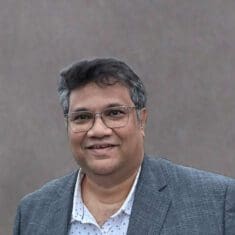Bachelor of Science in Business Economics
Why Earn your Bachelor of Science in Business Economics at Sacred Heart University?
Economics is the study of decision-making under scarcity. Individuals, households and firms are constantly evaluating the trade-offs of using their time, money and/or resources to satisfy their wants. Economic models explain these behaviors and provide a framework to evaluate shocks to the decision-making process.
In the applied field of business economics, students will use economic tools–the core economic theory and applied analytical methods–to critically evaluate decisions by market agents. They will explore questions like:
- How do changes in price affect consumers’ willingness to buy and producers’ willingness to sell in product markets?
- What is the optimal combination of capital and labor in a production process? What role does strategic flexibility play as prices change in resource markets?
- How does the government impact the economy through fiscal policy? How does the Federal Reserve independently impact the economy through monetary policy? When do fiscal and monetary policy conflict? What policies lead to greater economic growth?
- How are products, resources and money exchanged across countries and what are the impacts of tariffs and trade policy on the economy?
- How do I construct an empirical model from the theoretical frameworks, test hypotheses using the scientific method, distinguish between statistical significance and economic significance of these relationships and make forecasts based on these models?
The BS in business economics program provides students with an understanding of the global business environment and market structure. Through the program, you will:
- Acquire the data-driven analytical skills needed to investigate and evaluate the economic effects of policy actions at local, state, national and international levels.
- Use industry-standard applications: Excel and E-Views
- Interpret economic events and conditions affecting the markets and society, at large
- e.g. the role of economic sanctions on trade and economic growth, the impact of national deficits and/or debt on market stability and the effects of the Great Recession and COVID-19 on the economy
- Understand economic factors that impact individuals and business decision-making
- e.g. the impact of interest rates on consumer spending and/or saving; the role of antitrust legislation to protect consumers and market efficiency
- Explore the role of ethics and unintended consequences in economic decision-making
- e.g. the role of policies on minimum wage, environmental protection and public welfare on employment and market efficiency in the short and long run
In the BS in Business Economics program, you will also:
- Benefit from small class sizes
- Learn from faculty who are internationally recognized scholars
- Have the chance to pursue research opportunities, both independent or alongside faculty
- Gain internship experience through opportunities for placement at GE, People’s United Bank, UBS, Bank of America, Bloomberg, Blum Shapiro and Pricewaterhouse Coopers
- Put your knowledge to the test and solve real-world local business problems in the Problem-Based Learning (PBL) Lab
- Have the opportunity to immerse yourself in monetary policymaking in the Fed Challenge competition
- Be invited to travel to various corporate headquarters and business offices as part of the Welch Experience
- Use Bloomberg Terminals and economic data through databases such as Datastream and Compustat
- Have the option to study abroad
- Be part of SHU’s Jack Welch College of Business & Technology, which offers innovative programs, an active approach to learning and experiential learning opportunities alongside networking and resume-building opportunities
How do I tailor this broad degree to my own interests?
Three formal tracks have been developed for those who are interested in focusing their electives in one area.
Global Economy
Ask yourself: Are you “all about the money...” that is, the flow of money in our global economy? Are you fascinated with how the countries around the world are economically connected? Are you concerned with how market actions may affect your portfolio? If so, the global economy track may be for you!
In our global economy track, we emphasize the significance of the international context. We evaluate and offer the opportunity to pair the economic courses with international applications in finance, marketing or management.
Strategic Decision Making
Ask yourself: do I enjoy a battle of wits (e.g. The Princess Bride or Hunger Games)? Am I interested in the art of the deal? If so, the strategic decision-making track may be for you!
In the strategic decision-making track, you will build on microeconomic fundamentals to dig deeper into the strategic interactions between individuals across a wide range of competitions and negotiations.
Analytical Economics
Ask yourself: Am I interested in seeing the story behind the data…the image behind the matrix code? Do I have questions that I would like to empirically test, to analyze and better understand individual, household or national decision-making? Am I excited about the opportunities to collect more and more data with use of AI and machine learning? If so, the analytical Economics track may be for you!
In the era of big data, there is an incredible push to create and analyze data. If cash is ‘king’ then data is a close second. For years economists have been on the cutting edge of new analytical techniques, to ever-improve our forecasting accuracy and understanding of individuals’ behaviors when confronting scarce resources. In this track, you will learn the tools and empirical models to evaluate your own hypotheses and to make forecasts across different types of data–cross-sectional, panel and time-series–and you will learn how machine learning can contribute to curating and managing big data.
https://www.sacredheart.edu/majors--programs/business-economics---bs/
